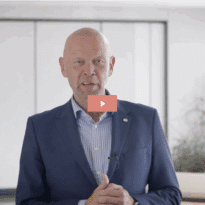Lewis Byford, director of Antony George Recruitment, provides insight for paraplanners when writing their CV for the 20920 market.
Given the current climate and challenges that we are facing, we are seeing many redundancies and job losses. Keeping your CV updated is a sensible precaution, avoiding the need to rush into it should the need arise.
As recruitment consultants we can always assist and help jazz-up a CV, but nothing can compare to your own words and outlook from the personal experiences that you have gained during your career.
We have broken this guide into six sections so you can quickly jump to the part in which you are working on or would like to improve on your CV.
A CV should typically be around 2 – 3 pages long. Don’t worry if it’s longer but make sure you have clear headings so that a potential employer can easily select the important parts that they wish to read.
1. Personal details. It may seem like an obvious one but so many CV’s do not have the basics! Make sure to include the following: your full name, home address, contact number and an email address. Your address is important, I know and can understand that some people don’t like to add this, but it is important to state at least the town or city in which you are located. Employers like to see this to measure the potential commuting time for a new employee. Please please please… make sure that all of the above details are correct and up-to-date also.
2.Personal Statement. This needs to be around a paragraph long giving a highlight of your career. For example, mention how many years you have been paraplanning, the highest qualification you hold and if you are working towards any others. It is also nice and a personable touch to mention a small piece of personal/family life, remember you are talking to a human who wants to see you and your personality.
3. Work experience. This will be the largest section. Here you need to list in a clear format: Job title, Company Name, Period of Employment, Duties and Responsibilities.
When we speak to paraplanners about their job roles and then look at their CV’s, it is never detailed enough. We have found that employers like to know more about:
- The CRM’s that you have gained experience with?
- What research tools have you used?
- What platforms are you familiar with?
- Are you using Cashflow modelling tools? If so which ones?
- An understanding of what sort of business you are regularly involved with and your business mix: Pensions 50%, Investments 40%, Protection 10%.
- What client interaction do you have if any?
- What is your relationship like with the adviser, do you consult with them about the case? Are you direct?
- Are you a part of a pool of paraplanners or are you one on one with an adviser?
- Talk about the types of clients you are dealing with, average FUM to invest, discuss about one of the biggest case sizes you have done and what was involved (within reason).
4. This is the time to showboat! I know for paraplanners this can be a hard thing to do but dig deep and put yourself as number one on the podium. Talk about your qualifications, look back through your previous experience and look at some wow moments – your biggest professional achievement/achievements to date and what you aspire to achieve in the next 5/10 years. It might be from a client providing you feedback about how much money you saved them on IHT and the difference it made. You might have won an award in your firm or from a recognised professional body. Even ask your peers how you have helped them and add this.
5. Qualifications. This section may seem like a standard one, but again this is one that people often miss out and it is normally not detailed enough.
List qualifications since school and the dates when you studied. When it comes to the industry specific qualifications put them at the top of this section but please remember we and employers don’t know every acronym and exam under all the different professional bodies so please list it in a way in which it’s easy to understand, for example:
Chartered Financial Planner
AF5 – Financial Planning Process
AF7 – Pension Transfer
AF1 – Personal Tax and Trust
AF2 – Business Financial Planning
Diploma in Financial Planning – DipPFS
6. About you. This can be your personality, hobbies and other interest’s outside of work. This section is very important, it goes back to the start of this article, employers want to see that you’re human, talk about your hobbies even small ones, you might read 10 minutes before bed every night or enjoy cycling in your spare time. This all creates conversation starters and is perfect for rapport building.
To summarise, when writing your CV just remember, it’s your time to talk about you, it enables you to reflect on your achievements allows you to realise how far you have come, from that small child playing in the playground to now helping your clients achieve the goals they need for the retirement they want.
It is not about getting a job it is about detailing your life (professional and personal) and it’s crucial to take the time and make it the best it can be.































